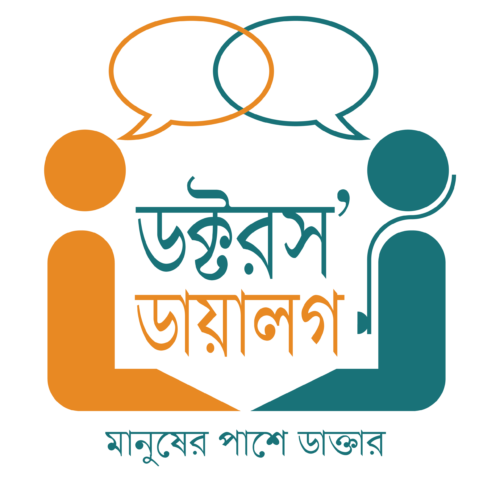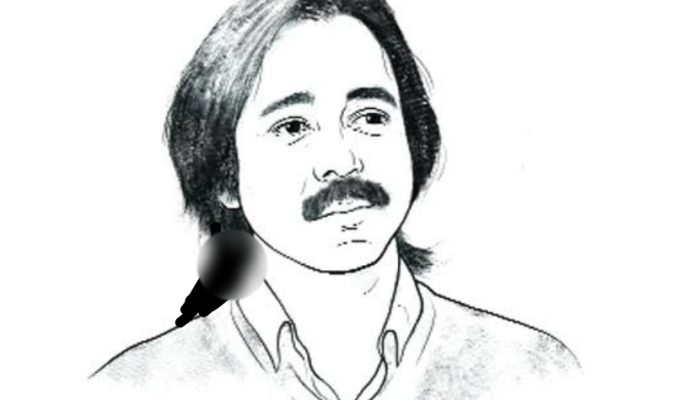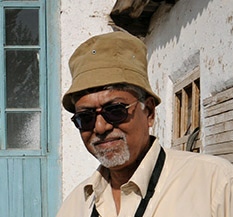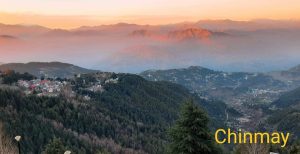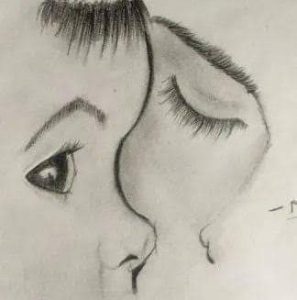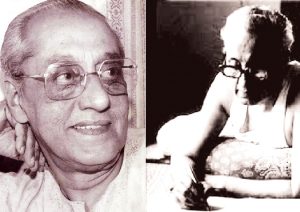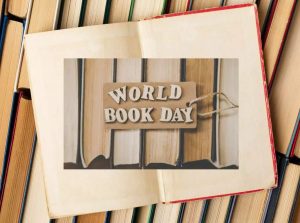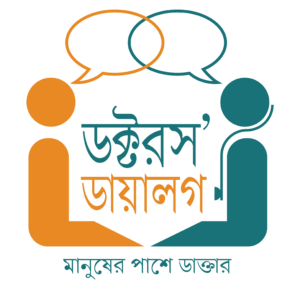A Non-sense Novelette
Chapter 6
Names Do Matter
Chandu’s reverie was broken by the awakening of the sleeping Buddha. The silent familiar gesture of the pudgy index finger of the right hand was enough to refill the void in the empty glass. A rumbling burp with a not so gentle follow through almost drowned the next few words:
“What is the name?”
“Rupchand Goyala”
“Come again!” Paharida was obviously jolted. He shuddered and sifted to give his full attention to Chandu.
“Rupchand Goyala”
“Oh Lord” Paharida shook his head and mumbled incoherently, “I must have had too much to drink. There is no poem in you. Nobody with such a name can have any poem fluttering out of any of his crevices. I am sorry”.
Paharida’s gesture with his ring–adorned fingers was a clear indication for a no parking . Chandu, thoroughly agitated, looked around at his friends who were enjoying themselves and sneaked away without paying the bills. After all, he had the business streak in his blood.
But the seed was already sown and the poet in Chandu was not to be weeded. He looked closely at his own eyes in a mirror and pondered. Poet he would become and stick to Paharida whatever the cost.
Chandu plunged into the world of Bengali literature. The evening he frequented Chung Wah for the company of Paharida and soliciting his advice. Initially hesitant, Paharida was moved by Chandu’s tenacity, perseverance and whisky, and encouraged him to go on.
But Paharida was adamant in one respect, “We have to change your name Chandu. Better men than you with better ancestral tails than yours have tried and failed. Well, not all,” he mused, “a few have survived. But that is neither here nor there. If you are inflicted with a name such as yours and you plan to keep it hoisting, forget poetry.”
“Bengal’s literary society,” Paharida elaborated, “has a long tradition of Chattopadhyay, Bandopadhyay and Gangopadhyay. With a few exception, non-padhyays have had little chance. Honouring the heritage can’t you became a padhyay with a simple affidavit?”
“My father would surely disinherit me,”
“So padhyay is out of question. Well let’s think about it and see what we can do to modify the name. Rupchand Goyala. Hmm. Meantime get on with your writing. Your lines are starting to show promise.”
The usual norms of de-grooming your hair and getting it long, having a designer side bag of great length and so on Chandu followed with minimal delay.
His newly acquired unhinged look of his lower jaw and long hairs in complete disarray, with the glazed vacant eyes that he already possessed changed his profile dramatically. More difficult to acquire, but Chandu eventually did in a matter of days, was the ability of softly muttering to himself when in presence of others. People called you a loony bin or a poet or both, but true poets hardly bothered.
Rich dividends were not delayed. College union bosses had one glance at his new appearance and immediately herded him into the union room and branded him the new editor of the college magazine. Chandu was thrilled to the core. He never edited anything, the bulging muscles of the literary contributors subdued this itch of his, but he thoroughly enjoyed his new-found status.
The hardware part of the whole programme was tough enough to break most aspiring poets.
The first hurdle was getting to know the Bengali alphabets by heart, without the knowledge of which you could never scan a dictionary so essential in the life of a poet.
The next part was meticulously browsing through the works of other toilers, preferable long past and refashioning them into your own words and lines. Chandu learnt early that words, yes, only words had the power to weave magic in Bengali poetry and he needed to master it. When you wanted to describe eyes, you could talk about lightening or ocean or dead fish or anything else except eyes. That was the great trick.
Not to sadden the heart of readers the chronicler has decided to condense the next few weeks of Chandu’s journey, for it was one of those lonely struggling days, but not without occasional high points.
He spent sleepless days and restless nights searching for words, lines and rhymes, but yielded little. The wastepaper basket was overflowing with almost, but not quite, literary gems. One inspirational flame and Bengal would have burned surely.
He chewed matchsticks, swallowed and ruminated, coughed and spluttered mouthfuls of whisky and even went to the extent of sprinkling country liquor around the room to get the right ambience, but to no avail. Chandu was toiling hard, unaware that Robert Bruce was smiling at a fellow toiler and a weak sun was already peeping through the clouds.
There were many who have toiled equally hard, but only a few have succeeded. Some of the more serious failures have become honorary poets (non-performer), while the frivolous ones have shifted to other arenas.
With bovine tenacity in his saps, Chandu started showing early signs of success. His use of the word anaconda to describe a passionate embrace and presentation of forbidden pleasure in the form of a breast cutlet was rated highly by himself and his co-diners at Chung Wah. Even Paharida openly applauded Chandu’s imagery of feminine beauty with “double half damsels” and elaborated that these words provoked the poetic mind to visualize the Khazuraho carvings.
(To be continued)
